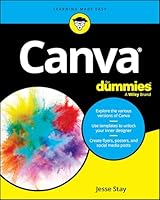
Microcopy: Discover How Tiny Bits of Text Make Tasty Apps and Websites
- Length: 93 pages
- Edition: 1
- Language: English
- Publication Date: 2017-05-13
- ISBN-10: B071S54VLL
- Sales Rank: #391758 (See Top 100 Books)
Microcopy consists of small pieces of text like headings, hint texts, placeholders, summaries, and instructions throughout a website or app. These little bits of content often get overlooked to the detriment of the application or website you’re building, which is tragic since they make the difference between technology that fades into obscurity and technology that goes on to become extremely successful products.
In this book, we’ll see how:
- One retail firm increased its monthly revenues by $25,000,000 by changing one word
- A website prevented hundreds of credit card billing errors using a single sentence
- An enterprise chat app used playful microcopy to grow to a $3.8B valuation
You’ll understand the power of microcopy through many real-life examples and learn how to:
- Analyze microcopy for strengths and weaknesses
- Identify opportunities to use microcopy
- Plan your microcopy
- Start writing better microcopy
- Validate its effectiveness
Here’s some praise for the book:
“The content is good. Copy is something that I’ve been trying to get my hands on so Chapter 7 was very helpful for me.” — Jelvin Base, UI/UX Designer
“I really like it since i’m still new in microcopy and gives me an idea why microcopy is important for every app and website. It’s easy to understand and apply specially for beginners like me. I will definitely recommended this book to my friends.” — Eric Luciano, Front-End Developer / Designer
“Niaw prepares her readers for the wonderful world of Microcopy (and burritos) with great examples here and there partnered with the value of using it, reasoning as to how Microcopy works, and flavourful wordplays. This short but tasty book proves how powerful small things like microcopy can make a big difference to your designs.” — Pierce Jonota, Designer
Table of Contents
Chapter 1 – Introduction
Chapter 2 – Gain Users’ Trust
Chapter 3 – Guide the Way
Chapter 4 – Encourage Action
Chapter 5 – Make Them Feel Good
Chapter 6 – Process
Chapter 7 – Writing
Chapter 8 – Conclusion
Appendix A – Bibliography







